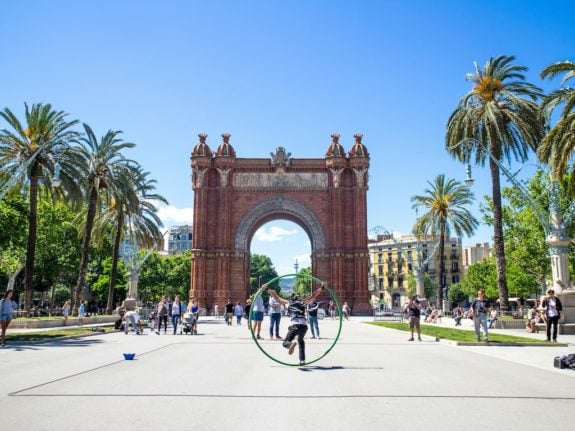Spain is on the up economy speaking, it would seem. Its GDP is growing at faster rates than any other major European economy and according to the latest employment figures it has more people working than ever before: 21 million.
Optimistic headlines about minimum wage rises and more job stability have become increasingly common, although often it’s Spanish newspapers’ political bias which determines whether to praise or criticise the country’s job market.
Are these positive economic and employment changes palpable for the average person? In most cases, no.
The left-wing coalition government of Pedro Sánchez may have implemented measures to make job conditions and salaries somewhat better for those who are really struggling, but Spain’s job market remains chronically sick, as it has been for decades.
Although its general unemployment rate isn’t as alarming as during the economic crisis of the previous decade, its rate of paro of 11.7 percent in March 2024 is the highest of the eurozone.
Spain also still claims top spot for youth joblessness in the EU at a more worrying 28 percent.
Even though Spain’s Labour Minister Yolanda Díaz spearheaded a key reform which led to a huge reduction in temporary job contracts, which were in theory replaced by permanent positions, it’s since emerged that half of these fixed job contracts (contratos indefinidos) go up in smoke before a year has passed.
At best, Spain’s job market has gone from really bad to bad. It remains the most glaring drawback for many foreigners of a working age who know that they’ll probably have to sacrifice higher wages and job opportunities for a life here.
It’s no wonder that Spain’s brain drain of local talent continues (379,000 in 2022), whilst foreign nationals who are willing to put up with the dire labour market occupy the vast majority of new jobs created.
And from something that never changes about Spain to something that is – the gentrification of Spanish cities, and more specifically the so-called ‘touristification’ of central working-class neighbourhoods.
We’ve been covering rising discontent against mass tourism in Spain, particularly with regards to rising rents, and no story better showcases how Airbnb-style holiday lets are forcing out locals than that of 87-year-old Cádiz resident María Muñoz.
Se llama María, tiene 88 años y va a ser desahuciada de su casa de toda la vida para poner pisos turísticos en el barrio del Pópulo en Cádiz. Los propietarios son los herederos del último alcalde franquista de Cádiz. La "democracia" en España. pic.twitter.com/YCfWrHyF5H
— Fonsi Loaiza (@FonsiLoaiza) May 8, 2024
She’s lived for 57 years in a rented flat in El Pópulo neighbourhood where she raised her children, but on June 26th she will be evicted from her home, which will be turned into a tourist apartment.
The only option she’s been given is to buy the property, which she cannot afford.
El PP no entiende lo que es el turismo de convivencia.
El caso de María, de 87 años, que será desahuciada de su casa en El Pópulo llega y se visibiliza en el Parlamento andaluz gracias a nuestro portavoz @joseigs, que lo explica clarito 👇 pic.twitter.com/r9OIW1lRnU
— Adelante Andalucía-Cádiz (@AdelanteCadiz) May 3, 2024
The eviction has angered locals, reached the Andalusian Parliament and properly sparked the mass tourism debate in another corner of Spain, following similar popular outcries in the Canaries and Málaga in recent weeks.
Valencia? Seville? Granada? Which will be next? It seems almost certain that it won’t be long before alienated and priced out neighbours in another barrio or city in Spain raise their voices against what’s happening.



 Please whitelist us to continue reading.
Please whitelist us to continue reading.
The latest update via Càdiz local news is that the Señora Munez has been given occupancy of another apartment in the barrio, thanks to a private owner.